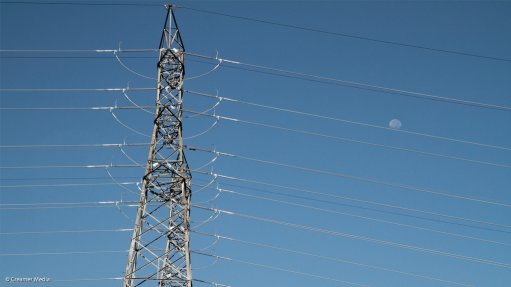Institute investigates use of e-learning
The Southern African Institute of Welding (SAIW) says one of the highest priorities in its training programmes is the implementation of e-learning as a teaching method.
The SAIW has subsequently assigned a senior member of the institute as the project manager to investigate the implementation of e-learning and direct the institute’s approach to e-learning, says SAIW qualification and certification manager Herman Potgieter.
The institute’s training programmes are all face-to-face courses. “We expect that our training programmes will use a blended approach in future, which will entail face-to-face and e-learning teaching methods,” he notes.
Potgieter highlights that although the institute trains about 2 500 personnel in welding and nondestructive testing (NDT) each year, the demand for its courses has significantly increased over the last three to four years.
This is partly because of the need for welding and NDT personnel in the construction of State-owned power utility Eskom’s Kusile and Medupi power stations, in Mpumalanga and Limpopo respectively, and partly because the institute has been more successful in promoting career opportunities in these fields.
Additionally, there is an international shortage of skilled welding personnel, which is resulting in the skills base moving to where the best opportunities arise.
In response to this, the SAIW has increased the num- ber of courses it offers by including International Institute of Welding (IIW) training programmes and expects further course expansions in the near future.
One such addition is a foundation course, which will form the basis for several courses next year.
“The foundation course will develop a candidate’s capability to cope with the mathematical, science and engineering content of the SAIW courses,” says Potgieter.
In addition to the yearly training syllabi updates, the institute’s training courses and examinations are also being revised to include more practical workshop and laboratory modules.
During the course-content restructuring, the institute will especially focus on restructuring its welding inspector course to ensure a higher level of practical content, as the nature of the candidate intake has changed.
“Previously, candidates were often artisans moving into supervisory or into quality assurance roles; but recently, it has become evident that candidates often do not have the engineering awareness background needed to be an inspector. Therefore, we want to give them a better foundation from which to develop their skills,” says Potgieter.
The SAIW also provides sponsorship to the universities of Pretoria and the Witwatersrand to ensure high-level programmes are accessible to train welding engineers. The impact of this sponsorship will become evident over the next two years, says Potgieter, when about 90 engi- neers and technologists will qualify through the universities’ and the institute’s programmes and courses.
The institute will host the first group of candidates for its newly developed five-day course in welding safety from September 30 and October 4.
While welding has some inherent dangers, including electrical and fume hazards, there are also other potentially more serious safety issues related to the application of welding in hazardous environments, including welding inside of vessels and equipment or in underground mining.
The welding safety course is, therefore, aimed at all personnel responsible for safety in welding, says Potgieter.
The course content addresses hazards associated with the process of welding and the application of welding in hazardous environments. It also includes training on relevant legislation and national and international standards, which include the regulatory requirements of the Occupational Health and Safety Act and the Mines and Works Act regulations, as well as the SANS 10238 standard for ensuring health and safety throughout the welding and thermal-cutting process.
The SAIW also ensures that South Africa has access to the best international training programmes through its membership of the IIW. The institute offers various training courses in welding, welding technology and inspection, pressure equipment regulation and NDT, as well as an inspection technology diploma.
The welding courses include the SAIW Practical Welding and the International Welding training programmes.
The Practical Welding training programme helps candidates improve their welding skills to consistently produce quality welds.
Training is adjusted to suit individual requirements with regard to the welding process (shielded metal arc, gas metal arc, gas tungsten arc and flux cord arc), the material of choice (stainless steel, carbon steel or aluminium) and the welding position that would like to be achieved (flat, horizontal, vertical or overhead).
Candidates who qualify are awarded a certificate of competency that is recognised by the industry.
The International Welding training programme, which is an IIW course, is available to candidates who want to pursue a career in welding.
The IIW courses consist of theoretical education, practical training and examination and comprise three levels of education and training – International Fillet Welder, International Plate Welder and International Pipe Welder. Material for practical welding is limited to carbon and low alloy steels, for which SAIW is approved to issue diplomas.
Welding Technology and Inspection Courses
The welding technology and inspection courses include the four-week Welding & Fabrication Inspector Level 1 and Level 2 courses.
The Level 1 course is designed for welding inspection and quality control personnel in a welding or fabrication environment, as well as for plant equipment inspectors.
The last of 16 Level 1 courses will be presented in Johannes-burg from October 28 to November 22.
The courses are also presented in Durban, Cape Town and Secunda throughout the year.
The Level 2 course is aimed at production and maintenance personnel who are responsible for the integrity of welded structures, welding inspections and quality-control personnel in a welding and fabrication environment. It is also suitable for those wanting to pursue a career as an inspector of pressurised equipment.
The last of seven courses, held in Johannesburg this year, is already under way.
The courses are also held in Durban and Cape Town throughout the year.
Further, the SAIW also hosts the two-day IIW Inspector (Standard Level) Construction & Design Conversion Module course and the two-week American Society of Mechanical Engineers Codes of Construction for Inspection of Steam Generators and Pressure Vessels course, the last of which will be held from October 14 to 25, in Johannesburg.
The three-day American Welding Society D1.1 Codes of Construction course is also offered, with the last course being held in Johannesburg from September 25 to 27.
Further, the SAIW offers the International Welding Practi-tioner training programme for qualified welders and welding supervisors who want to further their careers in supervision in the welding and fabrication field; the International Welding Specialist training programme for welding personnel who are already active in job functions, such as supervisors, instructors and technical sales; and the International Welding Technologist training programmes for persons aiming to qualify as technologists in welding.
The last International Welding Practitioner course for 2013 will be held from November 4 to 15, while the last International Welding Specialist course will be held from October 14 to 22.
The last International Welding Technologist course is already under way.
The SAIW’s welding tech- nology and inspection courses include a Heat Treatment Prac- titioner course, the last of which will be held from September 30 to October 11; the Process Plant Inspection course, the last two of which will be held from October 14 to 18 and from October 21 to 25; and the Paint Inspectors course, the last of which will be held in Johannesburg between October 18 and 22.
Pressure Equipment Regulation Courses
These courses include the seven- day competent persons foundation course, which will cover an introduction to the different welding processes and consumables, and basic metallurgy welding defects and how to avoid them. A ten-day competent persons steam generators foundation course on pressure vessels and steam generators and a five-day competent persons pressure vessels foundation course on pressure vessels and steam generators are also available.
The last competent persons foundation course for the year will be held from November 18 to 22, while the last competent persons steam generators foundation course will be held from November 18 to 29. The last competent persons pressure vessels foundation course will be held from November 11 to 15. All courses will be held in Johannesburg.
NDT Courses
The NDT courses include general courses in NDT, including an introduction to NDT, the appreciation of NDT for engineers and the Department of Health’s industrial radiographic safety courses.
Interested parties can still enrol for the industrial radio-graphic safety and the appreciation of NDT for engineers courses.
Further, the NDT courses include qualification Levels 1, 2, 3 and limited qualification level.
Interested parties can still enrol for the Eddy current testing Level 1 and 2, magnetic testing Level 1 and 2, penetrant testing Level 1 and 2, radiographic testing Level 1 and limited qualification, ultrasonic testing Level 1, 2 and 3, and ultrasonic wall thickness testing.
Inspection Technology Diploma
This diploma recognises that an individual has successfully completed a comprehensive three-year training programme in welding-related inspection technologies, which includes the equivalent of one academic year (30 weeks) of theory training and two calendar years of practical training.
Training courses are held at the SAIW’s Johannesburg training school, in City West, and also at venues elsewhere in South Africa and in other countries.
Training facilities at the City West premises include a practical welding school, with individual welding bays, modern and fully equipped classrooms and NDT laboratories.
Article Enquiry
Email Article
Save Article
Feedback
To advertise email advertising@creamermedia.co.za or click here
Press Office
Announcements
What's On
Subscribe to improve your user experience...
Option 1 (equivalent of R125 a month):
Receive a weekly copy of Creamer Media's Engineering News & Mining Weekly magazine
(print copy for those in South Africa and e-magazine for those outside of South Africa)
Receive daily email newsletters
Access to full search results
Access archive of magazine back copies
Access to Projects in Progress
Access to ONE Research Report of your choice in PDF format
Option 2 (equivalent of R375 a month):
All benefits from Option 1
PLUS
Access to Creamer Media's Research Channel Africa for ALL Research Reports, in PDF format, on various industrial and mining sectors
including Electricity; Water; Energy Transition; Hydrogen; Roads, Rail and Ports; Coal; Gold; Platinum; Battery Metals; etc.
Already a subscriber?
Forgotten your password?
Receive weekly copy of Creamer Media's Engineering News & Mining Weekly magazine (print copy for those in South Africa and e-magazine for those outside of South Africa)
➕
Recieve daily email newsletters
➕
Access to full search results
➕
Access archive of magazine back copies
➕
Access to Projects in Progress
➕
Access to ONE Research Report of your choice in PDF format
RESEARCH CHANNEL AFRICA
R4500 (equivalent of R375 a month)
SUBSCRIBEAll benefits from Option 1
➕
Access to Creamer Media's Research Channel Africa for ALL Research Reports on various industrial and mining sectors, in PDF format, including on:
Electricity
➕
Water
➕
Energy Transition
➕
Hydrogen
➕
Roads, Rail and Ports
➕
Coal
➕
Gold
➕
Platinum
➕
Battery Metals
➕
etc.
Receive all benefits from Option 1 or Option 2 delivered to numerous people at your company
➕
Multiple User names and Passwords for simultaneous log-ins
➕
Intranet integration access to all in your organisation

















